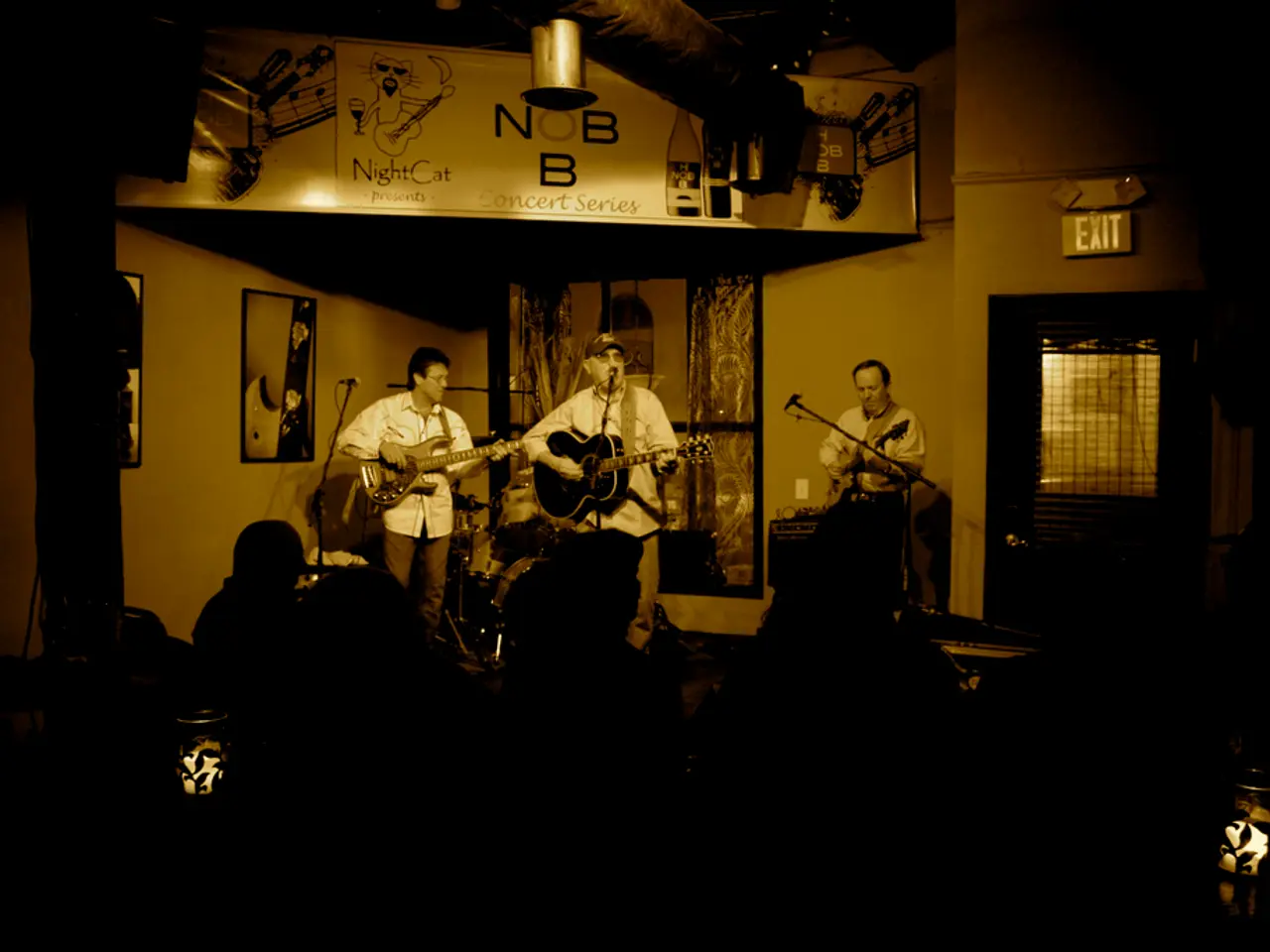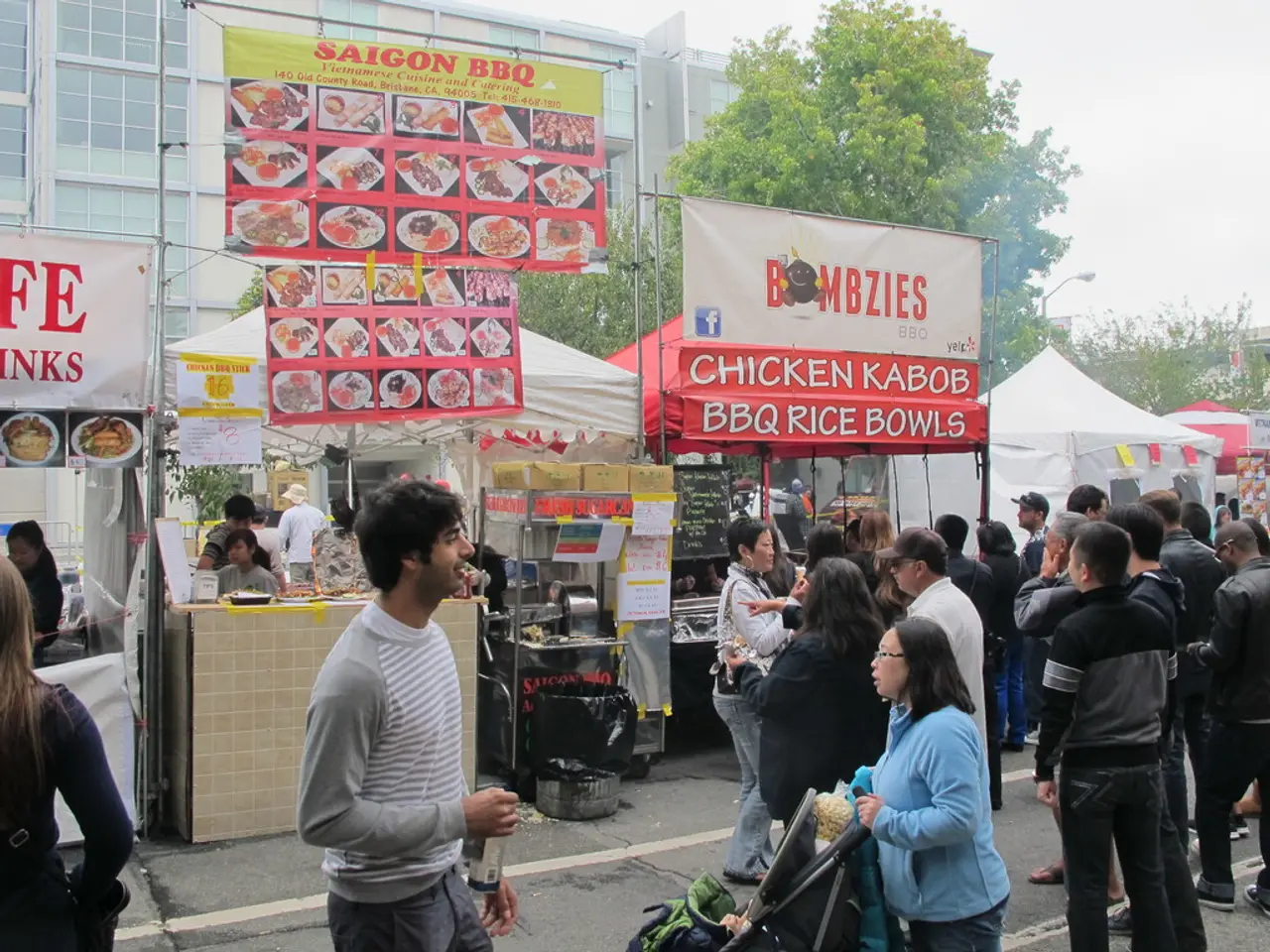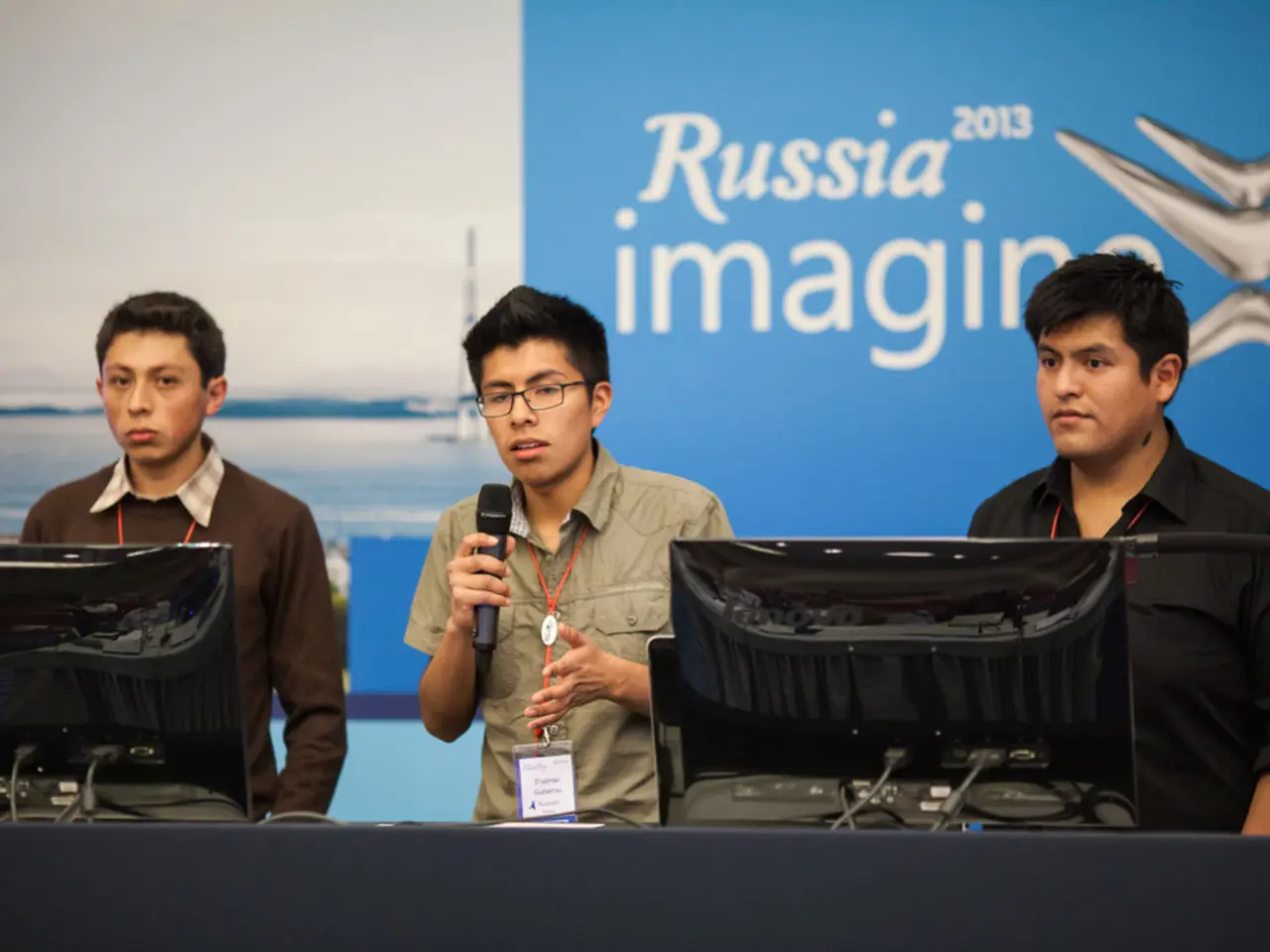The Importance of Musical Youth Groups Among the Young Population
In a significant turn of events, the UK government has announced an £88 million funding package to support youth clubs and after-school activities, marking a renewed commitment to youth provision following a decade-long decline in funding [1][2][3][5].
This investment comes as a breath of fresh air for organisations like The Soundsystem Project and the Young Urban Arts Foundation (YUAF), which have been grappling with the impact of funding cuts on their vital work [4]. The funding will provide extra-curricular activities in up to 400 schools, capital grants for improving youth club infrastructure in high child poverty areas, and support for local authorities to deliver out-of-school youth offers [1].
The Soundsystem Project, based in the Scottish Borders, introduces children to the intricacies of running a sound system, while YUAF provides training in skills like lyric writing, production, and podcasting to local young people living in deprived communities [4]. These organisations, along with many others, have been instrumental in providing a vital leg-up for young people as they prepare for work or university, teaching them skills like networking, writing emails, and work experience placements in the music, film, and TV industries [5].
The importance of these organisations cannot be overstated. More young people are making music, with the proportion who play an instrument, sing, and produce almost doubling since 2006 [6]. This renewed investment in youth spaces could help ensure a strong and diverse pool of talent for years to come, bridging the gap between music education and the music industry [7].
The past decade has seen a significant decline in youth service funding, with spending falling from £1 billion to £408.5 million between 2011 and 2021 [8]. This decrease in spending was followed by increased incidences of bike theft, shoplifting, and possession of weapon offenses (including knife crime) [9]. Young people engaged in youth groups were less likely to engage in anti-social behavior and crime [9].
Without investment in youth spaces, we stand to lose a valuable pipeline for tomorrow's artists. The recent funding announcements aim to reverse these trends by improving infrastructure, expanding access, and supporting targeted programs to widen participation and enrich young people's experiences [1][2][3][4][5].
The funding forms part of a broader National Youth Strategy expected to be published in autumn 2025, with an ongoing commitment to youth provision growth and addressing barriers to participation identified through recent government-commissioned research [4][5]. This research highlights socio-economic challenges, particularly for females and disadvantaged areas, in accessing youth activities [4][5].
The future outlook is promising, with the funding aiming to reduce safe spaces for young people, limiting opportunities for skill development, social connection, and confidence building [4]. This investment also seeks to mitigate the increased risk of social isolation and anti-social behaviors that youth services help combat [4]. Furthermore, the funding aims to address the exacerbation of inequalities, especially for children in poverty who face higher barriers to access [4][5].
The recent funding announcements are a step in the right direction, with the potential to have a positive impact on community cohesion and long-term youth outcomes, such as education engagement and mental health [1][2][3][4][5]. The investment in youth spaces is not just about nurturing tomorrow's artists, but also about building stronger, safer, and more cohesive communities.
References:
[1] BBC News (2025, August). UK government announces £88m funding for youth clubs and after-school activities. [online] Available at: https://www.bbc.co.uk/news/uk-62937619
[2] The Guardian (2025, August). UK government to invest £88m in youth clubs and after-school activities. [online] Available at: https://www.theguardian.com/society/2025/aug/01/uk-government-to-invest-88m-in-youth-clubs-and-after-school-activities
[3] The Telegraph (2025, August). UK government announces £88m funding for youth clubs and after-school activities. [online] Available at: https://www.telegraph.co.uk/news/2025/08/01/uk-government-announces-88m-funding-youth-clubs-after-school-activities/
[4] Young Urban Arts Foundation (2025). The YUAF Futures Programme. [online] Available at: https://www.yuaf.org.uk/yuaf-futures/
[5] The Soundsystem Project (2025). About Us. [online] Available at: https://www.thesoundsystemproject.co.uk/about
[6] Office for National Statistics (2021). Participation in cultural and recreational activities. [online] Available at: https://www.ons.gov.uk/peoplepopulationandcommunity/leisureandtourism/artandentertainment/bulletins/participationinculturalandrecreationalactivities/januarytodecember2020
[7] The Musicians' Union (2021). The state of the music industry: A report on the UK music industry. [online] Available at: https://www.musiciansunion.org.uk/assets/pdfs/research/state-of-the-music-industry-2021.pdf
[8] House of Commons Library (2021). Local authority youth services: A briefing paper. [online] Available at: https://commonslibrary.parliament.uk/research-briefings/cbp-9090/
[9] The Children's Society (2021). The impact of youth service cuts. [online] Available at: https://www.childrenssociety.org.uk/what-we-do/our-research/reports-and-publications/the-impact-of-youth-service-cuts
The recent funding announcement will cater to organizations like The Soundsystem Project and Young Urban Arts Foundation, allowing them to continue providing training in skills such as music production and networking, which are essential for launching careers in the entertainment industry. This investment in youth spaces, as part of the National Youth Strategy, aims to enrich young people's experiences with opportunities for social connection, skill development, and confidence building, preparing them for potential careers in music and other creative fields.






